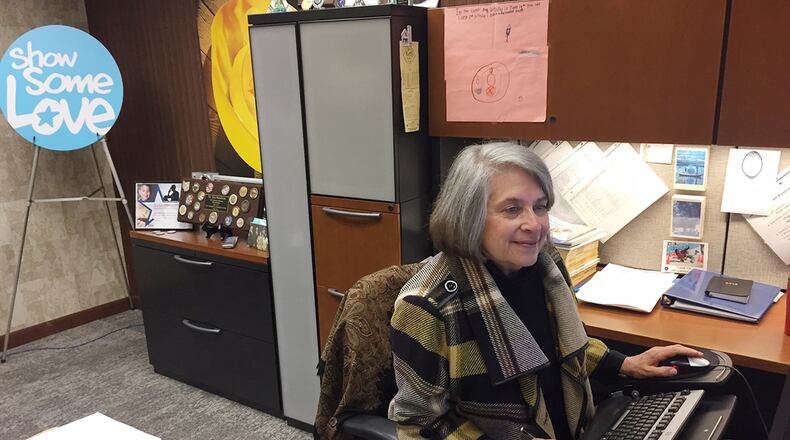Himelhoch: Six years ago, OPM began studying CFC operations. Other than e-pledge being introduced 10 years ago, very little had changed since 1961 when President Kennedy established CFC by executive order. OPM's priority since 2012 has been to streamline operations and consolidate efforts while protecting the program's integrity.
Some of the sweeping changes introduced last year included enacting new regulations, consolidating front- and back-office operations globally, facilitating the means by which donors can contribute, providing a mechanism for donors to contribute volunteer hours, and enhancing communications with CFC-approved charities.
How long does the campaign run? What is this year’s theme?
Himelhoch: Officially our local push will be until Nov. 16. OPM is allowing pledges to be made through Jan. 11, 2019. The global theme this year and last is "Show Some Love." There isn't anything that better states CFC's strategy and focus.
We have saved money on our campaign materials, allowing us to be good stewards of our resources, by continuing to use this theme.
How can people participate?
Himelhoch: Donors can pledge electronically and by using paper pledge forms, which can be easily downloaded from our website. Pledges can be fulfilled by payroll deduction through calendar year 2019, as well as by credit and debit card giving. Electronic pledges, including credit/debit, can be made by visiting Ohio CFC's website: www.ohiocfc.org and clicking the "donate" button. Charities can also be researched through this site, regardless if one is contributing.
You have the expertise and organizational prowess of several “loaned executives.” Who are they and what do they bring to the table?
Himelhoch: Heather Atkinson, program manager, Foreign Military Sales, New Business in Simulators, Agile Combat Support Directorate; and Di Lynn, chief of War Gaming and Deliberate Planning, Headquarters Air Force Materiel Command, are our dynamic loaned executives. They've brought boundless enthusiasm, leadership expertise, critical knowledge of DOD/federal operations, and an extraordinary desire to keep strong our local, national and global communities.
How are fundraisers and events that have happened in the past being handled?
Himelhoch: Under CFC's new regulations, fundraisers can no longer be held. Local, national and global campaigns no longer have the capability of handling cash, and all contributions must be designated to a CFC-approved charity. This makes so much sense because we need to focus our attention on raising awareness of the programs and services provided by charities, especially how they benefit individuals and our communities.
This year we have experienced an embrace of the concept that awareness is key to the campaign’s success.
What kinds of needs for CFC donations are being seen in the Miami Valley, regionally, statewide, nationally and internationally? Is the need increasing?
Himelhoch: There are always needs, and I feel recent weather-related tragedies drive home my sentiment.
First and foremost, any disruption takes an unimaginable toll on old and young alike, families and emergency responders. The requirement for basic necessities – shelter, food and medicine – is critical; the need for animal welfare assistance escalates; our environment is adversely affected; fine and performing arts organizations have been decimated.
It is important that the communities where we live and work have the support needed to restore their vitality – for all.
Why should people consider donating if they feel like they have less money and have their own concerns?
Himelhoch: I feel strongly we should donate because we want to, and to be aware that no gift, be it monetary or not, is ever too small. I'm a firm believer that we should give back in ways that best align with personal values, whether that's by volunteering, cleaning out a closet and donating clothing, toys, even obsolete mobile devices, and by contributing money.
You have been involved with the CFC – many times as a volunteer and sometimes as a paid professional. Why do you continue to do what you do?
Himelhoch: CFC's many years of success rest solely with its volunteers. It is such a privilege to collaborate with the DOD and federal workforces, charity representatives and know that, ultimately, programs and services benefitting thousands of people and causes reap the rewards of the efforts.
Is there anything else you’d like people to know about the CFC?
Himelhoch: Charity representatives continually thank me for the generosity exhibited by our local DOD/federal workforce whose contributions have significant impacts globally.
About the Author
